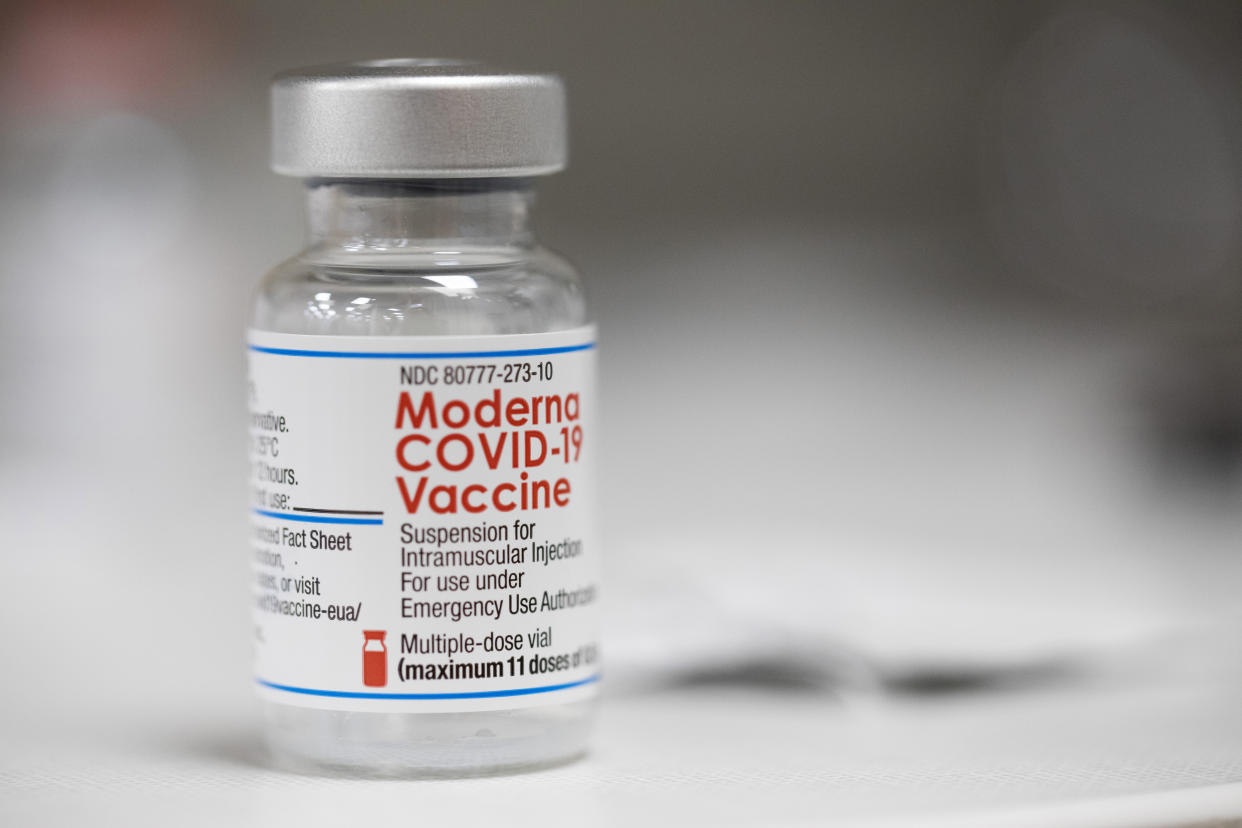Moderna Q3 earnings miss blamed on slow global demand, manufacturing constraints
Moderna (MRNA) reported its first miss in several quarters on slower demand and production issues for COVID-19 vaccines, its only commercial product, as concerns over winter variants loom.
The company downgraded guidance for COVID-19 sales to $18 billion for the year, compared to guidance of $21 billion in the second quarter. Sales for the third quarter were $3.1 billion, a 35% decline from the same quarter last year.
Moderna said in a statement the decline in expected revenue is based on production strains, pushing certain deliveries into 2023 "due to short-term supply constraints."
The supply constraints stemmed from diverging requests for updated bivalent boosters in Europe and the U.S., according to CEO Stéphane Bancel.
When the U.S. chose a different strategy than Europe, in pursuing a BA.4/BA.5 bivalent booster rather than an Omicron/BA.1 booster, in late June, it put Moderna's — and the mRNA platform's — capabilities to the test.
The company had already been producing the Omicron bivalent and was able to immediately roll those out, Bancel said in an August interview, but the shift to a new product altogether tested the 100-day timeline that mRNA is supposed to be able to offer.
Moderna blames the decline in revenue on the FDA. In an SEC filing, the company said it was "primarily driven by lower sales volume due to the timing of market authorizations for our COVID-19 bivalent boosters and the related manufacturing ramp up."
The filing contrasts Bancel's previous comments to Yahoo Finance.
"I think that's one of the beauties of the Moderna capabilities that we have manufacturing-wise, is we can do what the customers want. And we want to be here to help public health officials," Bancel said in August.
Moderna's chief commercial officer, Arpa Garay, said the demand for bivalent boosters, while still low, is tracking similarly to last year.

Increased competition
The company faces competition for its mRNA platform, as well as generally in the vaccine space.
While it is well ahead of the general rush of interest in mRNA, it continues to have to compete with the Pfizer/BioNTech (PFE/BNTX) partnership. The latter is readying regulatory filing for a maternal RSV vaccine by the end of the year. Moderna, meanwhile, expects its Phase 3 RSV data by the end of winter.
RSV is another respiratory virus that is weighing on pediatric units and children's hospitals as the country battles another year of COVID-19, plus the return of flu as well as RSV. The tridemic, also called the tripledemic, has created demand for combo vaccines as well.
Moderna says it expects data from its combo flu-Covid vaccine in early 2023.
Follow Anjalee on Twitter @AnjKhem
Read the latest financial and business news from Yahoo Finance
Download the Yahoo Finance app for Apple or Android
Follow Yahoo Finance on Twitter, Facebook, Instagram, Flipboard, LinkedIn, and YouTube
